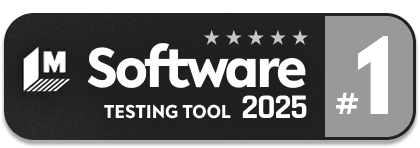Generative AI-Based Testing Certification
Integrations
All supported integrations can be found here (except for CI/CD systems, since testRigor supports most of them).
Test case management
Test case management tools enable companies to monitor the progress of their comprehensive test case plans. Within their test case management system, companies can assign specific test cases to contributors and monitor the behavior of each test case across multiple executions. Crucially, these tools offer a comprehensive view of test run history across all scenarios outlined in the test plan. This insight can highlight to companies which features are most prone to issues when new features are merged.
testRigor integrates with test case management systems. It allows to associate test cases on testRigor side with test cases in a test case management system. If a test case is associated, then when full retest of all test cases is triggered, testRigor will set the status of test case not only in testRigor itself but also in that test case management system. It allows testRigor customers to see manage complex processes involving many ways to run regression tests in one place.
testRigor integrates with TestRails, Zephyr, Azure DevOps, XRay, ReportPortal, and several other test case management tools.
Ticket issue creation
Customers need to report their bugs so that developers are made aware of fixes that need to be made before merging a feature into production. These systems allow them to do that.
For Jira, users can now assign values for custom fields. The name of the Jira field must be the one that starts with customfield_.
testRigor integrates with Jira, AzureDevops, PivotalTracker, and several other issue management tools.
CI/CD
In simple terms, CI/CD tools allow customers to oversee release cycles. Testing is a pivotal phase in this cycle, as it enables companies to identify bugs before they reach the public. Depending on the test outcomes (pass or fail), the CI/CD tool either progresses with the release or stops it. Our CI/CD integration leverages API calls to initiate certain actions within testRigor suites.
Database testing
Database is a system where data is usually stored by applications. It is considered to be a very bad practice to access directly to database during testing because the structure of the database can change.
testRigor supports communicating with SQL and NoSQL databases. Once you run a command the resulting columns will be automatically exported as variables. Database integrations should be configured in Settings prior to use, however they can be overridden in command line in CI/CD.
For example, running the following command:
run sql query "select top 1 UserID, LastName, FirstName from Users;"
will run that SQL query in database that was configured in Settings, read the first row with the data and then create variables UserID, LastName, and FirstName automatically with the data from the row that had been read from the database, so you can later do validations like this:
check that stored value "LastName" itself contains "Doe"
testRigor supports querying MySQL, PostgreSQL, Microsoft SQL Server, Snowflake, MongoDB, Grid Gain, and more. If you need database access that is not listed here please contact testRigor support.
You can read more about database syntax here
Third-party infrastructure providers
testRigor’s testing capabilities are restricted to certain devices, relying on simulators and emulators. Some applications necessitate testing on actual devices. That’s where integrations with device farms, like LambdaTest and BrowserStack, come into play. We transmit required actions through API calls.
testRigor integrates with LambdaTest, BrowserStack, Kobiton, SauceLabs, and several other test infrastructure providers.
Note: testRigor has an exclusive partnership with LambdaTest, enabling us to offer more competitive pricing for our users.







